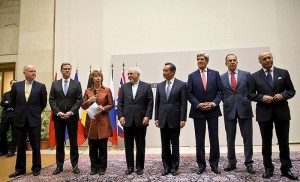 Rumi, as interpreted by Coleman Barks, had this to say: Out beyond ideas of wrongdoing and rightdoing there is a field. I'll meet you there.
Rumi, as interpreted by Coleman Barks, had this to say: Out beyond ideas of wrongdoing and rightdoing there is a field. I'll meet you there.
In Tehran and Washington, politicians and analysts continue to wrangle over the Nov. 24 interim nuclear agreement reached in Geneva between Iran and the P5+1 nations. At issue is the future of Iran’s nuclear program and the international sanctions regime imposed against the Islamic republic. Also at issue are Iran’s relations with the rest of the world and the future of the long US-Iranian estrangement. Among the questions asked about this agreement are the following:
- Can “we” trust “them”? Will they hold up their side of the bargain? Hasn’t history proved that the other side is interested only in deception and evasion?
- Is it a “good deal” for us? Did the other side give up anything of significance in return for the real concessions we made?
- Can the agreement withstand opposition from the hard-liners? Will actions by the US Congress or Iranian extremists sink the deal?
- Can the United States convince its friends in the Middle East, notably Israel and Saudi Arabia, not to undermine the agreement?
- For Washington: Is the Islamic republic running a secret program to build a nuclear weapon? Will it continue to do so despite the new agreement?
- For Washington: What were the effects of the international and national economic sanctions imposed on Iran? Should those sanctions be eased — as stipulated in the interim agreement — or should they be tightened to force Iran to make more concessions?
Read more here
The Iran Project is not responsible for the content of quoted articles.

